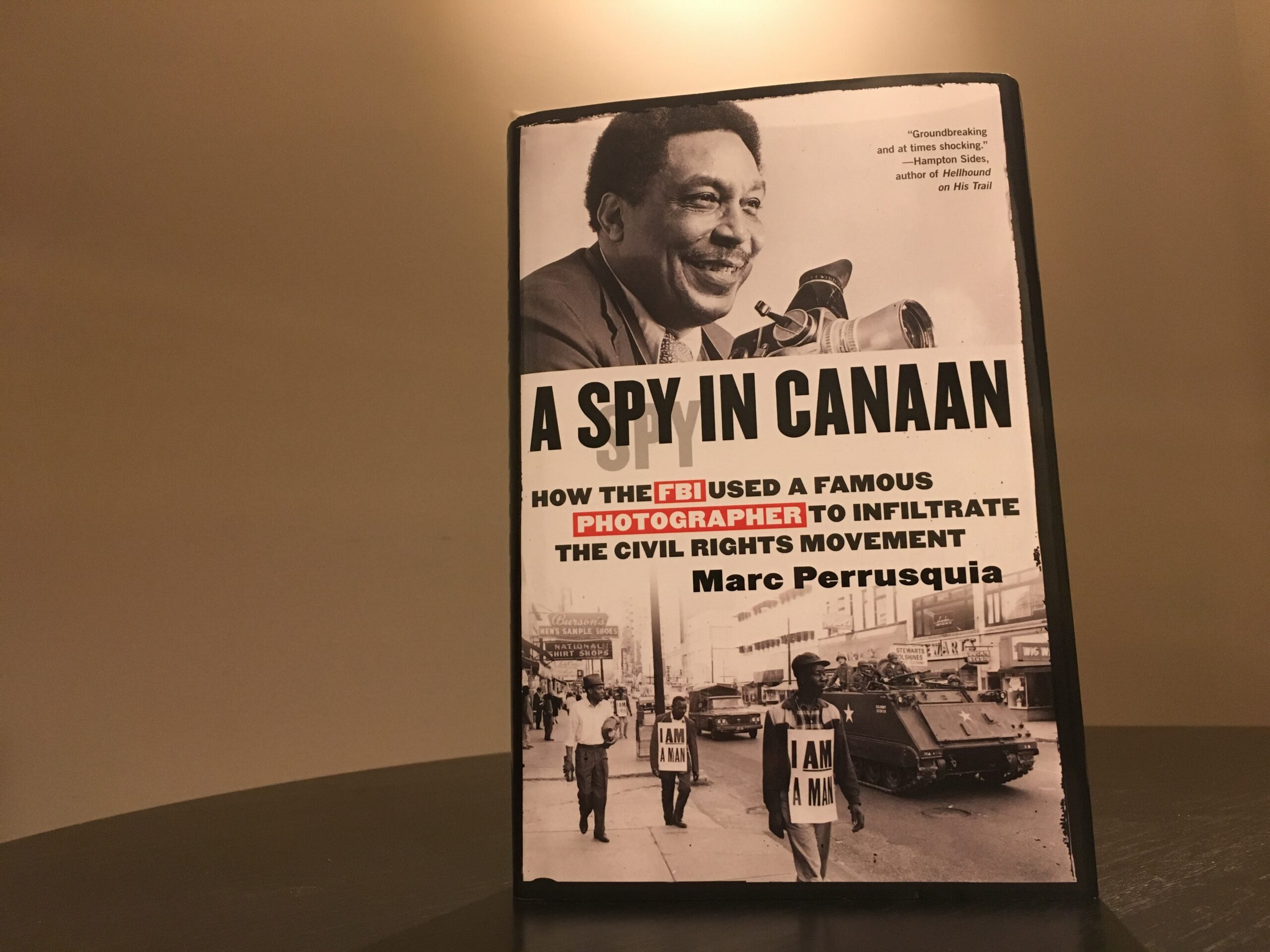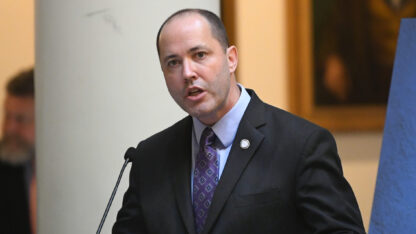Civil Rights Photographer’s Double Life As FBI Informant Explored In New Book

Marc Perrusquia’s new book, “A Spy In Canaan,” tells the story of that work and of Ernest Withers’ secret double life.
Myke Johns / WABE
As a photographer, Ernest Withers captured some of the most indelible images of the Civil Rights Movement. He was in the courtroom during the trial over the murder of Emmett Till, and he was with Dr. King in his room at the Lorraine Motel hours before he was assassinated.
Ernest Withers was also a paid informant for the FBI.
Memphis journalist Marc Perrusquia broke the story in 2010 after a long investigation, during which he filed a Freedom of Information Act request and eventually had to sue the agency for their files on Withers.
Perrusquia’s new book, “A Spy In Canaan,” tells the story of that work and of Withers’ secret double life. As part of WABE’s ATL68 series, the author spoke with City Lights host Lois Reitzes about his work.
The book does not attempt to villianize nor pardon Withers.
“Ernest is a legitimate Civil Rights hero,” the author tells City Lights host Lois Reitzes. “He’s got a Blues Note on Beale Street in Memphis. They recently put his home on the National Registry of Historic Places. I think all of those are deserved. But the value of what I’m doing is to look at this hidden side that is very instructive for us today.
“If we want to live in a true, free democracy, we don’t want these abusive, wide-ranging investigations that basically amount to a police state. I think the two can live together. I think that he’s a true Civil Rights hero that had some flaws; arguably some deep flaws.”
Marc Perrusquia will speak at the Auburn Avenue Research Library Wednesday at 7 p.m. in an event in partnership with Charis Books.





